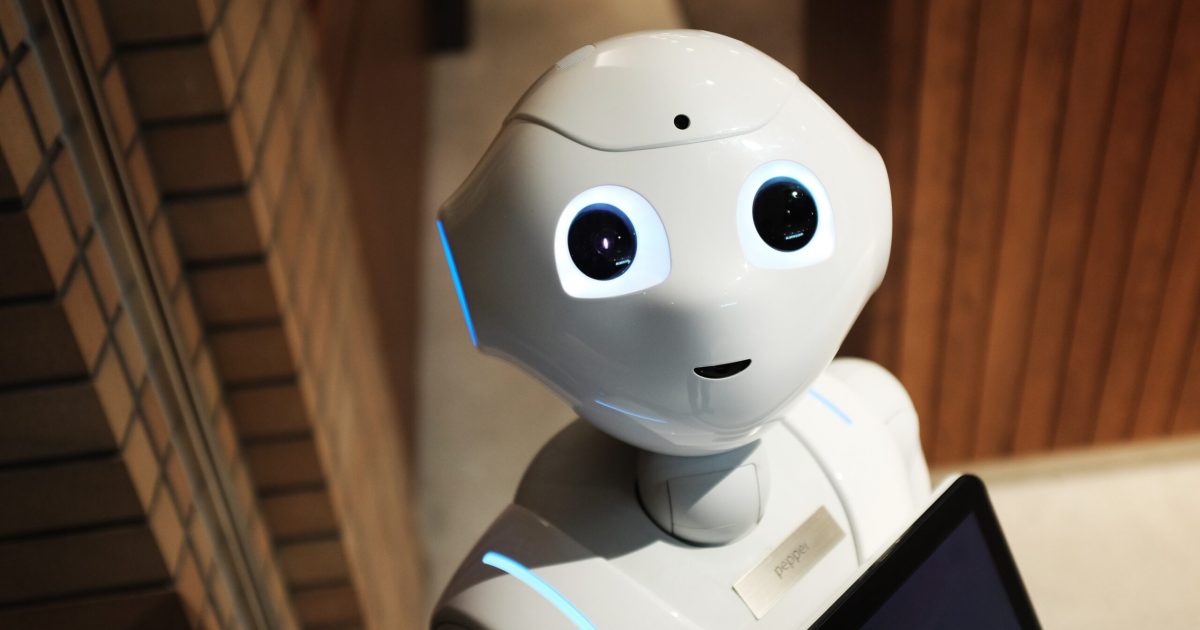
Introduction
In recent years, the rise of Artificial Intelligence (AI) has brought about a significant transformation in the job market. The implementation of AI technologies has led to both anxiety and excitement, as companies grapple with the potential benefits and challenges of this disruptive force. While AI has undoubtedly replaced certain jobs, it has also opened up new opportunities and revolutionised various industries. In this article, we will explore the current trends surrounding how AI is affecting jobs, the jobs AI will replace, and what lies ahead for the future of work.
The Evolution of Automation
Automation has long been a part of our lives, streamlining processes and improving efficiency. However, AI takes automation to a new level, enabling machines to perform complex cognitive tasks previously thought to be the domain of humans. As a result, certain roles are at risk of being automated or augmented by AI systems.
What Jobs Will AI Replace?
- Routine and Repetitive Tasks: Jobs that involve monotonous and repetitive tasks, such as data entry, assembly line work, and customer support, are increasingly vulnerable to AI-driven automation. Intelligent algorithms can quickly and accurately process vast amounts of data, reducing the need for human intervention.
- Transportation and Delivery Services: With the advent of self-driving vehicles and drones, the transportation and delivery sectors face significant disruption. Autonomous vehicles can navigate efficiently and safely, potentially reducing the need for truck drivers, delivery personnel, and even taxi services.
- Manufacturing and Warehousing: AI-powered robots are rapidly transforming the manufacturing industry. Robots can handle intricate assembly tasks with precision and work tirelessly without breaks, significantly increasing productivity. Similarly, automated systems in warehouses can efficiently manage inventory and streamline logistics operations.
- Financial Services: AI has made remarkable strides in the financial sector, particularly in tasks such as fraud detection, risk assessment, and algorithmic trading. While these technologies enhance accuracy and speed, they also threaten certain roles in traditional banking, insurance underwriting, and stock trading.
Jobs That Won’t be Replaced by AI
While AI technology continues to advance rapidly, there are certain roles that rely heavily on uniquely human skills and characteristics, making them less likely to be completely replaced by AI. These roles typically require complex interactions, emotional intelligence, creativity, and high-level decision-making. Here are some examples:
- Healthcare Professionals: The field of healthcare relies heavily on human empathy, critical thinking, and ethical decision-making. Doctors, nurses, and other healthcare providers require the ability to understand and respond to patients’ emotional needs, provide personalised care, and make complex medical judgments based on a holistic understanding of the patient’s condition.
- Social Workers and Therapists: Roles that involve providing emotional support, counselling, and therapy require deep human connection and empathy. Social workers, psychologists, and therapists employ active listening, intuition, and nuanced understanding of human behaviour to assist individuals in managing their emotions, mental health, and life challenges.
- Teachers and Educators: The role of educators extends beyond imparting knowledge. Skilled teachers facilitate meaningful learning experiences, inspire creativity, and foster critical thinking skills in students. They create supportive environments, adapt teaching methods to individual needs, and provide guidance and mentorship that goes beyond the capabilities of AI.
- Creative Professionals: AI may assist in creative tasks, such as generating ideas or providing design suggestions, but it cannot replicate the depth of human creativity and artistic expression. Artists, writers, musicians, and other creative professionals bring unique perspectives, emotions, and storytelling abilities that are fundamental to their work.
- Leadership and Strategic Decision-Making: Leadership roles, especially at higher levels of organisations, require a combination of strategic thinking, emotional intelligence, and ethical decision-making. Leaders must navigate complex situations, understand diverse stakeholder perspectives, and inspire teams towards a common vision. While AI can provide data-driven insights, the ability to make nuanced judgments and manage human relationships remains a human forte.
- Research and Development: AI can aid in data analysis and accelerate certain aspects of research, but the process of formulating hypotheses, designing experiments, and interpreting results still relies on human intellect and creativity. Scientists, researchers, and innovators play a critical role in advancing knowledge and pushing the boundaries of discovery.
- Customer Service and Hospitality: Although AI-powered chatbots and virtual assistants are becoming more prevalent, roles that involve delivering exceptional customer service and personalised experiences thrive on human interaction. Customer service representatives, concierge personnel, and hospitality staff excel in building rapport, resolving complex issues, and adapting to the unique needs and preferences of customers.
Adapting to the Changing Landscape
While some jobs may be susceptible to automation, the rise of AI also creates new opportunities and demands for human skills. Instead of fearing displacement, it is crucial for working professionals to adapt and upskill themselves to remain relevant in the evolving job market.
- Embrace Reskilling and Upskilling: By investing in continuous learning and acquiring new skills, professionals can equip themselves to work alongside AI systems. Developing expertise in areas such as data analysis, machine learning, and human-AI interaction can open doors to emerging roles that complement AI technology.
- Focus on Irreplaceable Human Skills: Certain skills are uniquely human and are unlikely to be replaced by AI. Skills such as critical thinking, creativity, emotional intelligence, and complex problem-solving are in high demand. Cultivating these skills can help professionals thrive in a world where AI is ubiquitous.
- Transition to High-Value Roles: Instead of perceiving AI as a threat, professionals can leverage AI as a tool to enhance their productivity and effectiveness. By delegating routine tasks to AI systems, individuals can focus on strategic decision-making, relationship-building, and higher-level responsibilities that require human judgement and intuition.
The Future of Jobs in the Era of AI
As the AI landscape continues to evolve, the future of work holds immense potential. It is essential for policymakers, businesses, and individuals to collaborate and shape this future in a way that benefits society as a whole.
Ethical Considerations
As AI systems become increasingly sophisticated, ethical concerns surrounding privacy, bias, and transparency emerge. Organisations must prioritise the development of AI technologies that align with ethical standards and ensure fairness and accountability.
Job Creation and Redefinition
While some jobs may be automated, AI will also create new roles that we cannot yet imagine. According to the World Economic Forum, the widespread adoption of AI could generate millions of new jobs by 2025. These roles will focus on managing AI systems, designing AI solutions, and developing new applications.
Lifelong Learning and Adaptability
The pace of technological advancement necessitates a culture of lifelong learning. Professionals must embrace continuous upskilling and remain adaptable to stay ahead in the job market. Governments and organisations should invest in reskilling programs to support workers during the transition.
Conclusion
The rise of AI has undoubtedly disrupted the job market, with some roles being replaced by intelligent machines. However, it is essential to recognise that this technology also presents significant opportunities for professionals to redefine their roles, acquire new skills, and contribute to a more productive and innovative future. By embracing the changing landscape, adapting to new technologies, and nurturing uniquely human skills, working professionals can thrive in the age of AI.
